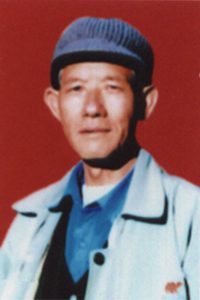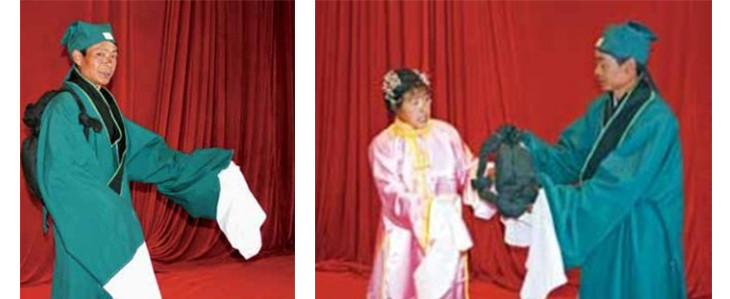
Li Jiaxian – Representative Inheritor of Qingxi Opera of Wa Ethnic Minority in Tengchong City, Baoshan
Li Jiaxian(李家显) was born in a Wa Ethnic family in the village called Ganzhezhai(甘蔗寨) of Tengchong, Yunnan in November 1934. His childhood was performed with his father, so he would sing when he was a child. He was the representative inheritor of Qingxi opera.

Background of Qingxi Opera
In the late Ming and early Qing dynasties, many merchants and tourists came to Ganzhezhai, waiting for the dawn of next day. At this waiting time, the merchants were inevitably looking for some fun, so they click on the lantern and sing a paragraph of the Qing opera.
Li Rukai(Great-grandfather of Li Jiaxian) was the Kalawang(Leader of Wa Ethnic) in that time, he used his way to transform the Qingxi Opera, so that it can be passed down.
After that, Qingxi Opera has became an entertainment activity for Wa Ethnic group. No matter how simple the stage was, Wa Ethnic group always gathered together to sing the Qingxi Opera after the work.
Life Experience of Li Jiaxian
Li Jiaxian was born in the Qingxi opera family. His grandfather and father were all actors of the Qingxi Opera. He has mastered the singing method of Qingxi Opera called Nine cavities and thirteen plates (九腔十三板), and he had been able to sing the dozens of regular performances such as “Jiang Gu Diao Sao (姜姑刁嫂)”, “Zhu Gan Pang Shi (逐赶庞氏)” and “Lu Lin Hui (芦林会)”.

Achievements of Li Jiaxian
He innovated and improved the Qingxi opera, and changed the way his father sang. On the basis of the original Jinghu(京胡), he added the use of instruments such as erhu(二胡), Luo(锣), drums and Bo(钵). He made the content of the Qingxi Opera more colorful.
http://www.ynich.cn/view-ml-13110-3014.html

 7 Days GolfingTour
7 Days GolfingTour
 8 Days Group Tour
8 Days Group Tour
 8 Days Yunnan Tour
8 Days Yunnan Tour
 7 Days Shangri La Hiking
7 Days Shangri La Hiking
 11 Days Yunnan Tour
11 Days Yunnan Tour
 6 Days Yuanyang Terraces
6 Days Yuanyang Terraces
 11 Days Yunnan Tour
11 Days Yunnan Tour
 8 Days South Yunnan
8 Days South Yunnan
 7 Days Tea Tour
7 Days Tea Tour
 8 Days Muslim Tour
8 Days Muslim Tour
 12 Days Self-Driving
12 Days Self-Driving
 4 Days Haba Climbing
4 Days Haba Climbing
 Tiger Leaping Gorge
Tiger Leaping Gorge
 Stone Forest
Stone Forest
 Yunnan-Tibet
Yunnan-Tibet
 Hani Rice Terraces
Hani Rice Terraces
 Kunming
Kunming
 Lijiang
Lijiang
 Shangri-la
Shangri-la
 Dali
Dali
 XishuangBanna
XishuangBanna
 Honghe
Honghe
 Kunming
Kunming
 Lijiang
Lijiang
 Shangri-la
Shangri-la
 Yuanyang Rice Terraces
Yuanyang Rice Terraces
 Nujiang
Nujiang
 XishuangBanna
XishuangBanna
 Spring City Golf
Spring City Golf
 Snow Mountain Golf
Snow Mountain Golf
 Stone Mountain Golf
Stone Mountain Golf














